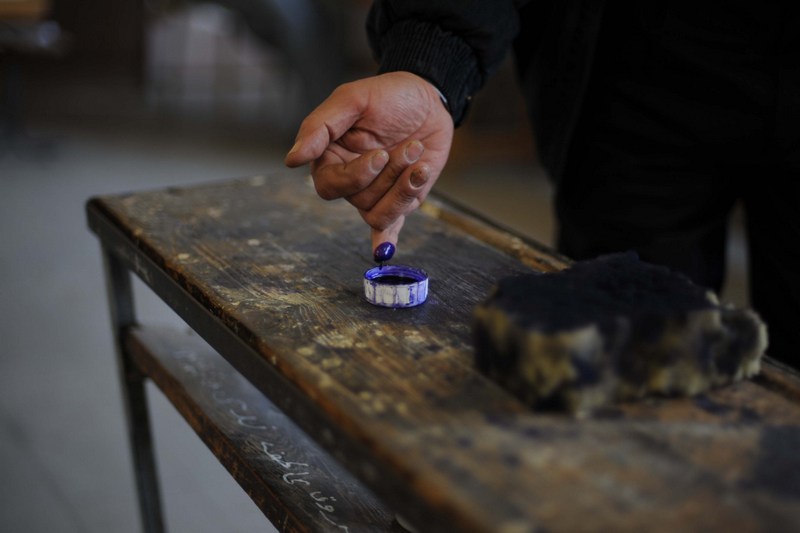NGOs, private corporations organize donation campaigns and transportation to Lebanon
CAIRO: With the continuous escalation of violence in Lebanon and mounting frustration with official Arab responses to the Israeli aggression, civil society has decided to act on its own.
By the second week of the war on Lebanon, reports indicated that the contributions of Arab NGOs had surpassed that of Arab governments.
Due to the involvement of numerous local and international non-governmental organizations, private sector corporations and other associations, it is difficult to survey all the efforts that have been made within the country to collect donations.
The bank account set up by the Lebanese Embassy to receive donations has received approximately LE 1.5 million and $50,000. Sources at the Lebanese Embassy expressed their appreciation for the contributions made by Egyptians and expressed hope that the numbers would keep increasing. Sources also noted that non-monetary donations are also valuable and very generous.
Sources at the embassy say that volunteers, both on an individual level and within civil associations, have offered their services in assisting the embassy in its work and campaign.
The donations go to help Lebanon and its children, sources continue, through reliable channels. They stress the transparency of the process, saying they will publicly announce all the details soon.
According to a report released by the United Nations on July 24, approximately 800,000 people have been affected by the conflict, some of whom have become refugees. Many refugees have taken shelter with relatives and friends or in schools, mosques and public spaces. Those who have escaped the most heavily affected regions in the south have headed to larger populations centers such as Sidon, the capital of the south.
The report describes the situation, The total number of affected people includes some 150,000 Lebanese, 1,000 Palestinians and 20,000 third country nationals who have reached Syria. In addition, 115,000 third country nationals from some 20 countries remain in Lebanon. Particularly vulnerable groups include the elderly and chronically ill – especially those confined to hospitals, women and children. Lack of access to water and sanitation, basic health care, and food is also affecting communities.
In an effort to support and assist the Lebanese victims, Egyptian enterprises and organizations have taken a part. The Egyptian Doctors Syndicate was one of the first to transport donations. According to Gamal Abdel Salam, the manager of the donations committee in the Arab Doctors Union, the organization’s convoy arrived in Lebanon two weeks ago, the first Egyptian entity to deliver assistance. He says that the money gathered from donations is used to buy medicines.
We buy medicines and give it to the Lebanese Ministry of Health, which, accordingly, distributes it among the victims, says Abdel Salam.
As for the Egyptian Red Crescent, Mohamed Abdullah, the manager of the assistance committee, says they sent clothes and textiles and some dry food products to Lebanon on July 21, adding that they used an Egyptian military plane to deliver the donations.
As for money donations, we collected $100,000, and we gave it to the International Committee of the Red Cross, which used it in buying two containers needed, one for oil and the other for water. The containers were delivered on July 29, says Abdullah.
The Egyptian government has also sent military aircrafts to Beirut carrying food and medical supplies. The planes carried equipment and personnel to operate a field military hospital offering medical and surgical services.
The Global Consultants, an Egyptian-Lebanese consultancy firm for educational training and social development, is cooperating with a Lebanese NGO, Popular Aid Committee (PAC), to send donations to Lebanon.
Einas Abou Hatab, the executive director of Global Consultants, says they send all the donations gathered to the PAC, which runs 25 medical and social centers in Beirut and all over Lebanon, to distribute it to the immigrant families who have moved from southern Lebanon. She adds that the NGO uses the money to buy medicines and help out Lebanese victims.
Private corporations have also contributed.
Tamyouz Trading Company, an affiliate of the Olympic Group corporations, will donate to Lebanon the returns of the day of the activity bringing in the highest revenues. Amr El-Tazy, the managing director of Tamyouz, says the company first discussed the idea when the war started. Implementation wasn t conceivable, however, because there weren t any organizations working on delivering assistance at that time, he explains.
We can t just see [the Lebanese victims] dying on TV and stand still crying, says El-Tazy.
El-Tazy says the company wants to donate a really helpful amount of money, thus they have decided to watch the revenues of one of the activities of the company throughout the week, and then donate the highest.
He adds that all employees of the company will also donate money in different amounts.
We tend to help the Lebanese victims through two ways: one of them is an official one, in the form of the donations, while the other is charitable, in which we speak to whoever we know, trying to encourage him/her to take a step and react to the situation, says El-Tazy. The United Nations has issued a global flash appeal to finance the work of its different subsidiaries in the region. The appeal, worth $149 million, covers an initial period of response of three months in priority areas including food, health care, logistics, water and sanitation, protection and common services, reads a press release issued by the UN Office for the Coordination of Humanitarian Affairs, Of the $149 million, $5 million are being allocated from the Central Emergency Response Fund for logistics, water and sanitation, and health care.
According to Mia Turner, spokesperson for the World Food Program (WFP) Regional Public Information Unit, WFP has requested $48 million, but says due to the increasing massive movement of humanity in Lebanon, the number is being revised. Initially the program intended to assist 310,000 people in southern Lebanon and Syria, which currently hosts thousands of Lebanese who have fled the Israeli shelling.
The scary part, Turner explains, is that the numbers are growing and not declining. She cites a colleague s account of the situation in Lebanon in which thousands of cars are on the road, with some vehicles carrying up to 12 people.
As part of the appeal, WFP is giving priority to distributing assistance to those most in need, including 95,000 displaced people seeking shelter in schools and public institutions in Beirut, 165,000 people in the heaviest-hit areas in southern Lebanon and 50,000 of the approximately 140,000 people in Syria who have fled the conflict, reads a WFP press release.
On July 31, WFP started distributing food aid to nearly 7,000 Lebanese civilians in the Syrian capital, Damascus, and would include central and northern Syria. Distribution inside Lebanon is still challenging, with not all conveys reaching their destination in southern Lebanon due to Israeli Defense Forces interference.
Through global donations, namely from governments, the UN has collected $24 million. There is global interest, says Turner, but there is always an opportunity for individuals to participate through the WFP Web site.


